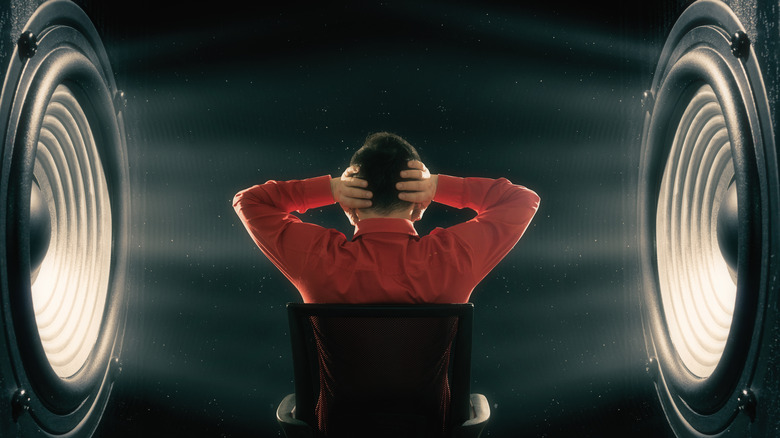Audiologist Dr. Hope Lanter Explains How Summer Activities Could Damage Your Hearing - Exclusive
Before you head out for some summer fun, you probably slather on some sunscreen to protect your skin. But have you ever thought about what you might need to do to protect your ears? Dr. Hope Lanter, an audiologist and expert for hear.com, says that even though most people don't think about protecting their ears during their favorite summer activities, the loud noises that occur throughout some of these activities can cause temporary or even permanent hearing damage.
Depending on how loud the noise is, hearing impairment can occur in as little as four minutes. But even quieter sounds, ones that don't seem loud enough to hurt your hearing, can cause damage if you're exposed to them for long enough. In an exclusive interview with Health Digest, Dr. Lanter revealed which summer activities and events can cause hearing damage, explained how loud noises can impact your hearing in the short term and long term, and described how you can tell if your hearing has been impaired.
Activities and events that put your ears at risk
When you think about loud summer events, fireworks and concerts are probably the first things that come to mind. Dr. Hope Lanter confirmed that these events pose the biggest risk to your hearing.
"Many concerts can easily exceed 100 dB, so it doesn't take long before this activity could cause damage to your hearing," she explained. "While fireworks can exceed 125 dB, the proximity to the blast is key to whether this would create an impact to hearing."
She added that noises louder than 120 decibels are capable of impairing your hearing within just a few minutes. But even quieter activities, like speedboating, can cause hearing damage if you're doing them for long enough.
"A general rule is that a sound that averages 85 dB (decibels) or higher can cause damage if [you're] exposed for more than 8 hours," Lanter said. "At 90 dB, exposure is only 4 hours maximum, 95 dB is 2 hours maximum."
She revealed that speedboats generally produce a noise that's between 80 and 90 decibels — so just a few hours of speeding around the lake or ocean can cause some hearing damage. Lanter went on to say that any activity loud enough that you have to raise your voice to talk to someone could cause hearing impairment if you're doing it for an extended period of time.
How you can tell if your hearing has been damaged
The telltale signs of hearing damage are a ringing in your ears and noises sounding muffled. Any time you experience these symptoms after being exposed to a loud noise, you've experienced minor hearing damage, even if your hearing eventually returns to normal and the ringing fades.
"Damage to the hearing nerve has occurred even when hearing seems to be back to normal," Dr. Hope Lanter revealed.
All that minor damage adds up over time. The more times you expose yourself to noises over 85 decibels for a significant period of time without taking protective measures, the closer you creep toward permanent hearing loss. You might not notice the changes in the short term, but over time, your hearing will get worse and worse. That's why it's important to have regular hearing tests and take simple preventative measures like wearing ear protection.
Dr. Hope Lanter has over twenty years of experience as an audiologist working directly with patients and helping them find the best hearing loss treatments that fit their individual needs. She currently sits as the Director of Partner Success and Lead Audiologist with hear.com.



